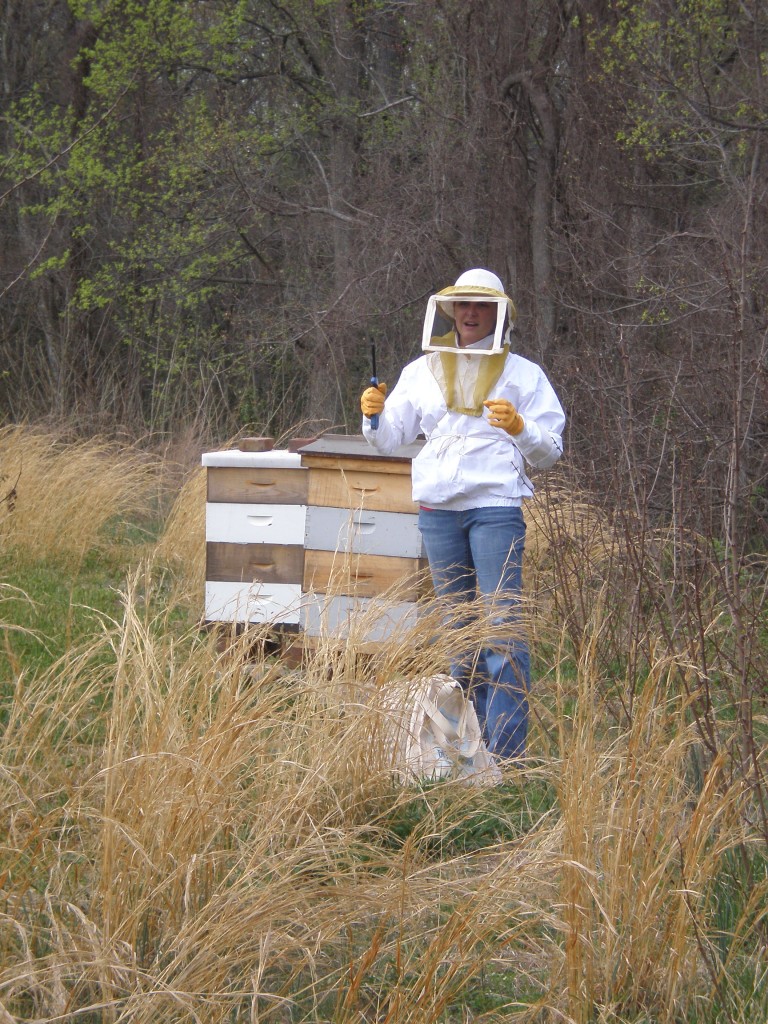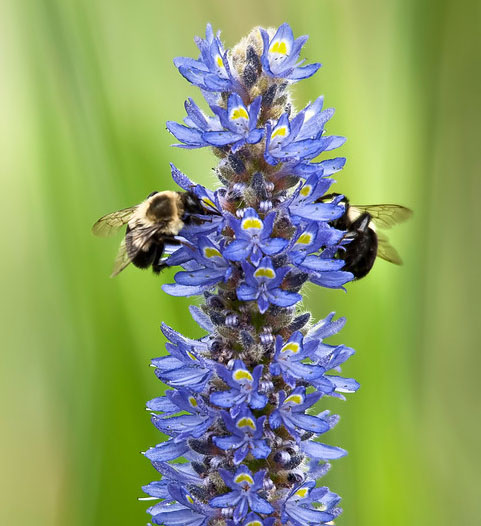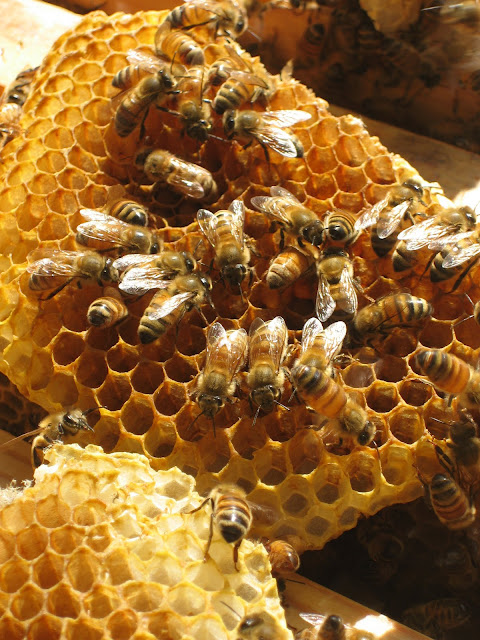The Secret Life of Bees
- by Kristen Wolenberg, Lewis Ginter Botanical Garden, Public Relations & Marketing Intern
What do you fear? For me it’s snakes and getting stung by a bee, which makes working in the Garden an ideal place to get over my fears. I haven’t seen any snakes in Lewis Ginter Botanical Garden, but I have seen a few bees. Whenever I hear that “bzzz” sound, my heart stops, I look around quickly, and then take a few steps back. I think I’m not alone in my fear of bees, but I’ve never understood their purpose, until I sat down with Grace Chapman.
Grace has been the Horticulture Director at Lewis Ginter since October 2011. Some of her interests include beekeeping and writing a gardening blog. Grace told me that she used to fear bees too. “I was the girl who would be the first to run away if I saw a bee.” So, what inspired her to be a beekeeper?! She told me that despite being terrified of bees she grew to admire them by learning more of their lifestyle.
Bees are vital to gardens around the world, as bees are responsible for one third of the food crop through pollination. Bees improve gardens’ yields with more and larger flowers and vegetables. Their hard work helps make any garden more beautiful. The survival of plants depends on pollination, and the honeybee accounts for 80 percent of all pollination done by insects. Lewis Ginter has a few beehives on our property, which Grace and Mike Stapleton care for. Even the White House added their first beehive in 2009 to ensure that Michelle Obama’s Kitchen Garden will be successful and plentiful. I found it interesting that the honey from the White House is often bottled and given to visiting dignitaries and heads of state. Now that’s a sweet visit!
Grace explains in her gardening blog talking about bees:
I always call my bees “my girls.” If you know much about bee hives, you will know that the workers(girls) do all of the work (collecting nectar and pollen, cleaning the hive, raising the brood), the queen lays the eggs (I call the queen “mom”), and the drones (boys) are basically around to eat honey and mate with new queens. So, the girls are the ones that I connect with because I respect their hard work and dedication to their families — and I think they are super cute 🙂
After reading this it is very evident that Grace has a lot of passion for her bees. She doesn’t fear them because she knows how vital they are. Even though bees are necessary for a successful garden, I still feared them because of their sting.
I was once stung but don’t remember the pain, and so I asked Grace what a sting feels like. She told me that a bee sting doesn’t actually hurt and feels similar to a pinch. She doesn’t get stung often but when she does, the pinch is so small that she realizes that there is nothing to fear. We fear bees and their sting because we can’t control where the bees fly, and that freaks people out, she says. Like many, I fear the unknown and bees are very misunderstood.She told me that the only time bees are likely to sting are if you step on them or go into their hive. Bees are so busy finding nectar that they are oblivious to humans, until we become a threat. She says, if you don’t go messing with them, they won’t go messing with you.
One thing that I learned is that honeybees like the ones at Lewis Ginter, die after they release their sting. Like all animals, honeybees want to live, and they will only release their sting if they fear you as a serious threat. The best thing to do is carry on with what you are doing, letting the bee do its hard work of making the garden more beautiful.
Grace is no longer the girl who runs away from bees, but is a role model on how to get over your fears. Instead of living her life in fear of them, she studied and learned more about the species, and in the end she fell in love. If Grace doesn’t fear them, then there’s nothing for me to fear either!


